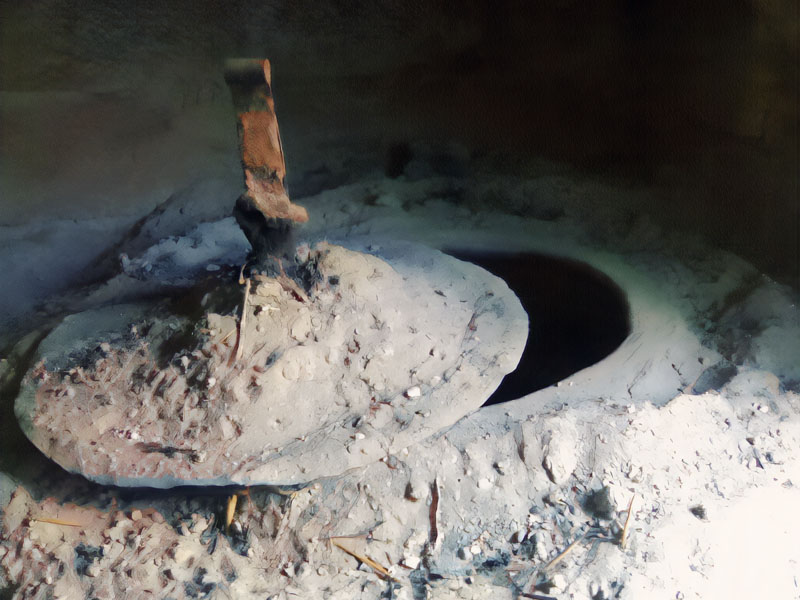Palestinian folklore: The endangered Tabun
Issue 34

By Dr. Said Salman Al Khawajah
Like other nations, Palestine has a heritage rich in traditional materials and tools that play a significant part in the people’s lifestyle, ways of thinking and behaviours. These traditional artefacts also reflect people’s sentiments, feelings and wishes.
Experts have developed an increasing interest in folklore. In general, we could say that folklore is as old as human society. Primitive man wandered, observed, listened and formed insights about various phenomena. He then developed interpretations and explanations for such phenomena.
Folk literature includes legends, myths, tales, proverbs, dialects, anecdotes and riddles about local raw materials.
The Tabun is an oven with an opening at the top used mainly for baking bread. Calcareous soil is mixed with hay and water, dried in the sun, and then covered with ashes, dried animal dung and an iron lid. Gravel was placed at the Tabun’s base, and then people lit a fire to make the oven hot enough to bake bread. If the oven was not used for some time, flammable material, including the remnants of olive pressings, was added to bring it to the right temperature for baking. Food was also baked in this outdoor oven. Farmers used the Tabun to keep them warm in the winters; they would gather around the Tabun, and add wood to it until the coals glowed red.
The Tabun is still used, especially by the older generation, because Tabun bread is much tastier than bread baked in modern bakeries.
The current generation has a duty to maintain the heritage, customs and traditions of the ancestors who worked diligently to build their nations and raise their children. Unfortunately, today’s generation ignores this heritage and the legacies of our fathers and grandfathers. It is imperative that official and civil authorities revive such heritage, and teach our children to preserve it.







































































